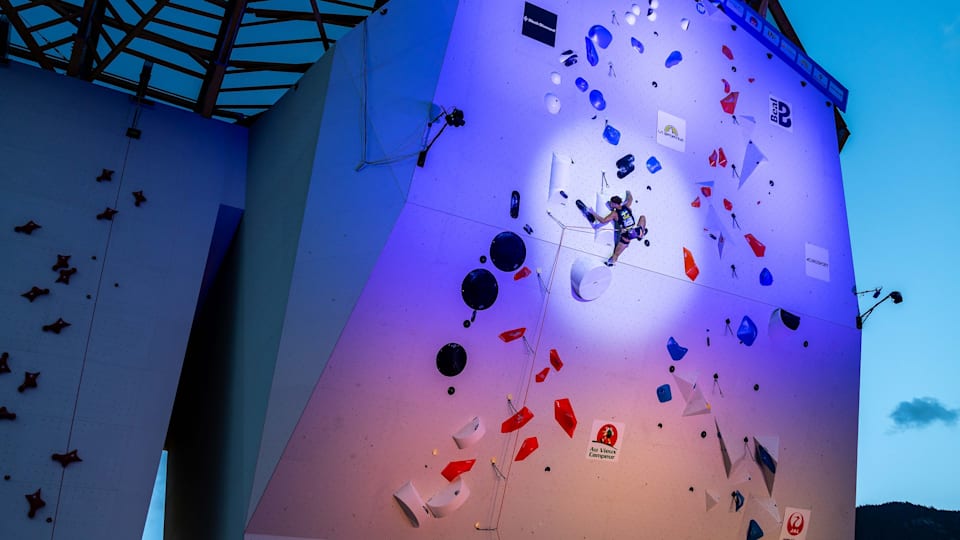
The first event in sport climbing's Olympic Games Paris 2024 qualification pathway is upon us – the 2023 IFSC Climbing World Championships, held in Bern, Switzerland, from 1–12 August.
It is the sport's 18th world championships since the first edition held 32 years ago in 1991, and the top level of competition climbing outside of the Olympic Games.
Olympics.com takes a brief look at the history of sport climbing and how the Climbing World Championships have developed.
Brief history of sport climbing
Sport climbing is a sport that originates from traditional rock climbing, which is believed to have started as a recreational activity around the end of the 19th century.
In 1985, competitive climbing began in Bardonecchia, Italy, in the Alps on the border with France, with an event known as SportRoccia, which would be held three more times before the 1990s. In 1986, the first competitions not held on natural rock formations but on artificial climbing walls took place near Lyon, France.
The Climbing World Cup began in 1989, a year after a World Series was introduced. Around the same time, the International Climbing and Mountaineering Federation took over the running of the sport, and in the early 1990s a decision was taken to only hold international competitive sport climbing events on purpose-built climbing structures so as to protect natural landscapes.
A World Championships was first held in 1991, followed by the inaugural Youth World Championships in 1992. Within the International Climbing and Mountaineering Federation, competitive sport climbing gained its own rules body known as the International Council for Competition Climbing in 1997. This was replaced a decade later by the International Federation of Sport Climbing (IFSC), the present governing body of the sport.
Development of the Sport Climbing World Championships
Three years after the development of a climbing World Series and two years after the first Climbing World Cup, the inaugural Climbing World Championships were held in Frankfurt, Germany, in 1991, with competitions in lead climbing and speed climbing. They were to be held every two years.
Innsbruck, Austria; Geneva, Switzerland; Paris, France; and Birmingham, Great Britain hosted the next four World Championships with only lead and speed competitions at each. In that time, the size of the Championships had grown from 110 to 180 athletes.
Boulder climbing had been officially approved as the third discipline of sport climbing in 1998, with the first World Cup events in bouldering occurring in 1999. In 2001, the discipline was added to the World Championships in Winterthur, Switzerland.
After 2011, the Championships were moved to even-numbered years so as to avoid a clash with the World Games, at which sport climbing had featured since 2005 and were to be held again in 2013. At those 2012 Championships in Paris, the combined event – which brought all three disciplines of lead, boulder, and speed together – was held for the first time. Para-climbing was also added to the official World Championships programme around the same time, with its debut in 2011.
The Championships were moved back to odd years beginning with 2019 in Hachioji, Japan, after sport climbing's addition to the Olympic Games programme. Now, every other Championships – the ones held in years immediately before the Olympics – serves as an Olympic qualifier.
This year's Championships in Bern will see the Combined event change its name and format from a lead, boulder, and speed event to a refreshed "Boulder & Lead" event, after speed climbing was granted its own separate event at the Olympic Games.
